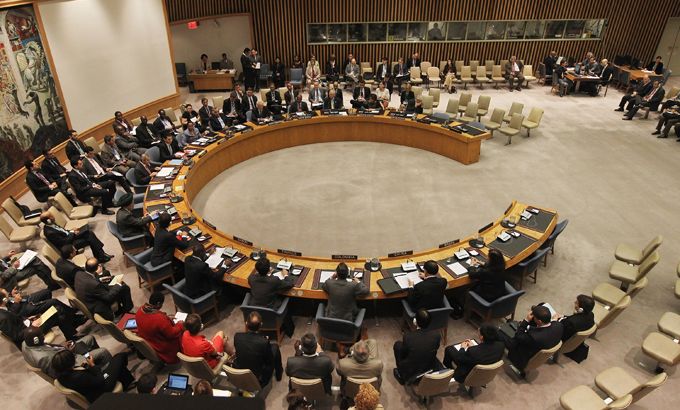UN votes to end no-fly zone over Libya
Security Council members vote unanimously to end no-fly zone in place since March despite Libyan calls for a delay.

The United Nations Security Council has voted unanimously to end NATO’s no-fly zone over Libya, despite the country’s calls for a delay.
The 15-member body voted on Thursday to end the no-fly zone, in place since March, from 11:59pm Libyan time (21:59 GMT) on October 31.
Al Jazeera’s Kristen Saloomey, reporting from the United Nations headquarters in New York, said a unanimous decision was not unexpected, but it came very quickly.
“Clearly there was a lot pressure in the council particularly coming from countries like Russia and China to wrap up the no-fly zone and NATO’s involvement in Libya,” she said.
“The resolution that was adopted today ends the protection of civilians mandate and ends the no-fly zone and also emphasises a need for the establishment of an inclusive and representative government in Libya.”
NATO, which carried out the air strikes that played a key role in the downfall of Muammar Gaddafi, the former Libyan leader, met on Friday and decided to end its mission in Libya by October 31, declaring it fulfilled its “historic mandate” to protect civilians.
After a meeting with Angela Merkel, the German chancellor, NATO chief Anders Fogh Rasmussen said that the UN resolution “reflects that we have fully accomplished our mandate to protect the civilian population of Libya, so now we have firm ground for terminating our operations as we decided to do a week ago”.
He said that while he does not “foresee a major NATO role in Libya in the post-conflict period”, the alliance was available to assist during the transition to democracy, particularly with regard to defence and security sector reform.
The decision comes a day after Libya’s interim leader Mustafa Abdel Jalil urged NATO to continue its Libya campaign until the end of the year to prevent Gaddafi loyalists from leaving the country.
Trial for killers of Gaddafi
Ibrahim Dabbashi, Libya’s deputy UN envoy, earlier told a security council meeting on Wednesday that the transitional council may have to ask for an extension of the mandate.
Dabbashi said Libyans were “looking forward to terminating the no-fly zone” and the mandate to protect civilians, but cautioned that Libya’s armed forces were not yet ready to take on national security.
“We wish to ask you not to be hasty in adopting a resolution and we will inform you of the official decision of the NTC, which we hope will be done by the end of this month,” Dabbashi told the meeting.
But many countries on the 15-member council wanted NATO to stick to its plan to end its Libya mission on October 31.
Vitaly Churkin, Russia’s UN ambassador, said an extension past October 31 would be “unrealistic”.
William Hague, the British foreign secretary, said the decision showed that Libya had entered a “new era”.
Hague, however, warned that after Gaddafi’s controversial killing by NTC forces last week it was “vital” for Libya’s new rulers to respect human rights.
His comments come after the NTC said they would prosecute the killers of Gaddafi following international outcry over the circumstances of his death.
“We had already launched an investigation. We have issued a code of ethics in handling of prisoners of war. I am sure that was an individual act and not an act of revolutionaries or the national army,” Abdel Hafiz Ghoga, vice chairman of NTC, said on Thursday.
“Whoever is responsible for [Gaddafi’s killing] will be judged and given a fair trial.”